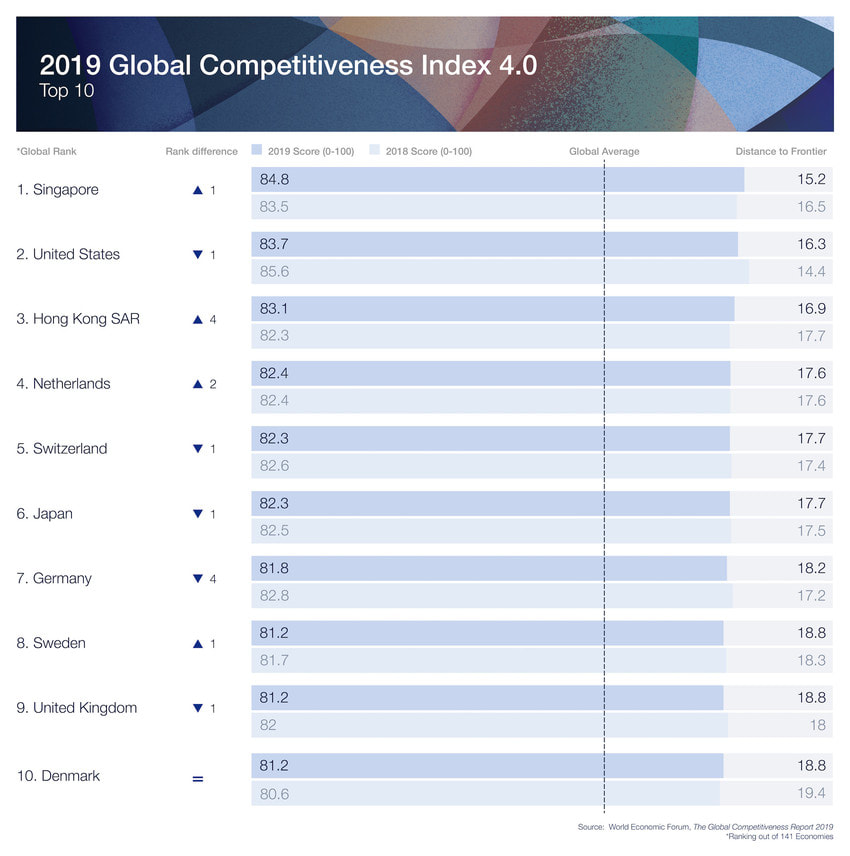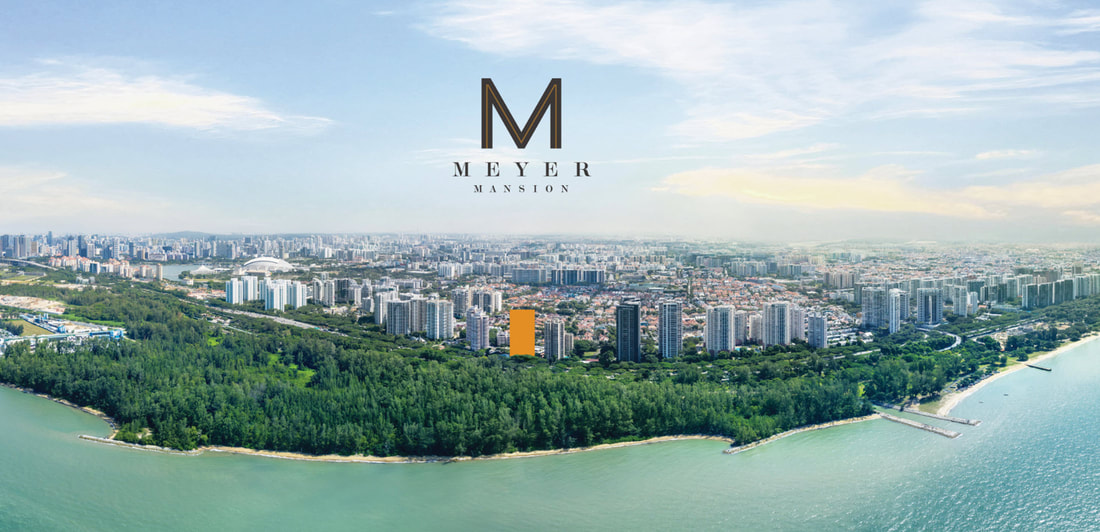Building on four decades of experience in benchmarking competitiveness, the index maps the competitiveness landscape of 141 economies through 103 indicators organized into 12 themes. Each indicator, using a scale from 0 to 100, shows how close an economy is to the ideal state or “frontier” of competitiveness. The pillars, which cover broad socio-economic elements are: institutions, infrastructure, ICT adoption, macroeconomic stability, health, skills, product market, labour market, the financial system, market size, business dynamism and innovation capability.
While the $10 trillion injection by central banks is unprecedented and has succeeded in averting a deeper recession, it is not enough to catalyse the allocation of resources towards productivity enhancing investments in the private and public sectors.
However, some of this year’s better performers appear to be benefiting from global trade tensions through trade diversion, including Singapore (1st) and Viet Nam (67th), the most improved country in 2019. With a score of 84.8 (+1.3), Singapore is the world’s most competitive economy in 2019, overtaking the United States, which falls to second place. Hong Kong SAR (3rd), Netherlands (4th) and Switzerland (5th) round up the top five.
HSBC's annual survey credited quality of life, highly competitive salaries and stunning surroundings. One of Singapore’s biggest draws is its safety and clean environment, with 85 per cent of expats surveyed feeling safer and more secure in the island nation, and appreciating the “very clean and safe public spaces” it offers. This is significantly higher than the global average of 48 per cent and 41 per cent respectively.
Singapore also scored significantly higher than the global average when it comes to having an “excellent education system” (47 per cent versus 26 per cent), and being “a good place to raise children” (54 per cent vs 28 per cent). The survey found that 62 per cent of expats think the quality of education their children receive is better in Singapore than it would be in their home country, again much higher than the global average of 36 per cent. Expats in Singapore also said the benefits of raising children here include fluency in more than one language and openness to new experiences and cultures, all of which the country scored higher than the global average.








 RSS Feed
RSS Feed
